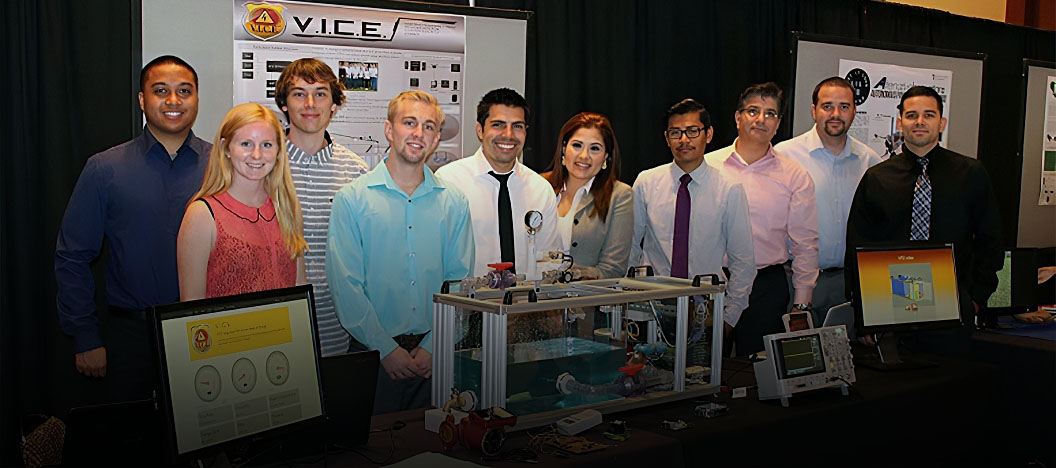Undergraduate Programs
B.S. in Electrical Engineering
Electrical engineering students at SDSU undertake a challenging but rewarding curriculum. Initially, they study foundational courses in calculus, physics, chemistry, and electrical circuits. In their second and third years, they delve into specialized courses specific to their major. These upper-division classes are particularly gratifying as they apply theoretical knowledge in practical scenarios. Students explore diverse areas including analog and digital circuit design, electronic materials, power systems, control systems, communication systems, and electromagnetics, which thoroughly immerse them in the field of electrical engineering.
A highlight of the program is the selection of technical electives, allowing students to tailor their education to their interests. Elective options are varied, encompassing fields like VLSI design (which involves microchip design), biomedical instrumentation, microwave transmission, communication systems, digital signal processing, microprocessors, multi-media programming, power systems design and analysis, optical electronics, and computer networks. The Department of Electrical and Computer Engineering at SDSU is notable for its flexibility in elective choices, offering the most diverse range among the four engineering departments.
B.S. in Computer Engineering
Computer Engineers are involved in the design, development, manufacture, installation, and operation of general purpose and embedded computers of all sorts. They are concerned with both hardware (i.e., the electronic circuits and devices that actually store and process information) and software (i.e., the programs that control the operation of the hardware).
Computer Engineers specialize in a broad range of areas, encompassing the design, development, manufacturing, installation, and management of various general purpose and embedded computers. Their expertise lies in both hardware – the electronic circuits and devices that store and process data – and software, which includes the programs directing hardware operations.
Their work extends to embedded controllers found in a variety of everyday and specialized devices, such as automobiles, home appliances, cameras, robots, and medical instruments. Their education includes courses focused on computer networks and systems capable of handling extensive audio and video data.
The Bachelor of Science degree in Computer Engineering lays a robust groundwork in mathematics, science, computer hardware, software, and engineering design. Beyond core subjects, students choose from professional electives that cover a range of topics including Very Large Scale Integration (VLSI) Circuits, multimedia systems (processing audio, visual, and textual information), computer networks, and digital signal processing. A pivotal part of the curriculum is a capstone design course, which fosters teamwork, design methodology, economic and social awareness, as well as oral and written communication skills, and encourages creative thinking.
This curriculum strikes a balance between theoretical knowledge and practical application, equipping graduates for immediate employment or further academic pursuits in the field.
The B.S degree in Computer Engineering provides a solid foundation in the fundamentals of mathematics, science, computer hardware, computer software, and engineering design. In addition to the fundamental classes, the students are required to select professional electives. Among these are courses that explore Very Large Integration (VLSI) Circuits; multimedia systems that process audio and visual information and text; computer networks; and digital signal processing to name a few. All students are required to participate in a capstone design course which emphasizes team work, design process, consideration of economic and social factors, oral and written communication and creative thinking. The computer engineering curriculum provides a balance between theory and practice that prepares the graduate for both immediate employment or to pursue a graduate study in the field.

